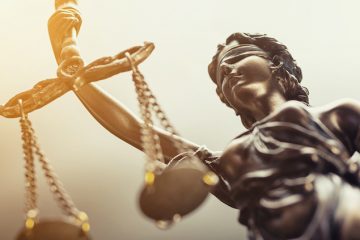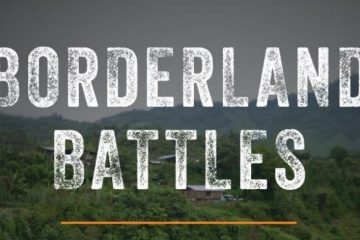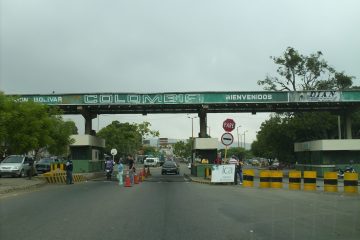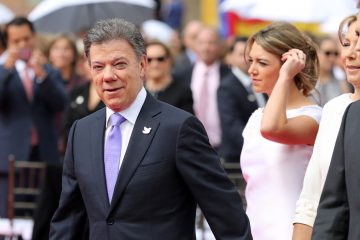
Why Strengthening the Rule of Law Matters in Transitional Justice: Lessons from Colombia
Since the end of the Cold War, Transitional Justice (TJ) has become the dominant framework informing peacebuilding when wars end. Each year, countries establish TJ systems to come to terms with a violent past. However, TJ rarely lives up to its promises. Criticism of TJ often focuses on its (in)ability to heal the wounds of violence, foster forgiveness and reconciliation in divided societies, or deliver restorative justice for both the victims and victimisers of a conflict. In this piece, I shed light on an often-overlooked limitation of TJ: its disregard for the Rule of Law (RoL). RoL, understood as a principle of governance by which law governs societies, is often seen to belong outside the remit of TJ. This is …
OxPol Blogcast Episode 7: Latin America’s Emerging Debt Crisis
Welcome to the OxPol Blogcast, a podcast where we will be sharing research, analysis, and experiences from members of the University of Oxford’s Department of Politics and International Relations. On each, episode we will talk to a guest about a piece they’ve written for the OxPol Blog. Then, we’ll discuss their larger research agenda, their insights on conducting political science, and their time at Oxford. On this episode of the OxPol BlogCast, host Chase Harrison talks to DPhil student Christoph Sponsel about Colombia’s credit rating, the Latin American debt crisis of the 1980s, and doing work at the intersection of political science and economics. Read the original blog post here: https://blog.politics.ox.ac.uk/colombian-mass-protests-foretelling-an-emerging-latin-american-debt-crisis/
Colombian Mass Protests: Foretelling an Emerging Latin American Debt Crisis?
S&P, a global credit rating agency, recently downgraded Colombia’s credit rating to a non-investment grade, implying that Colombian government bonds are now high-risk financial assets. The downgrade hit the country amid a wave of mass unrest. For over a month, Colombians spanning all strata of society protested in large numbers. Sparked initially by opposition to a government-proposed tax reform, which President Ivan Duque soon retracted, protesters expressed diverse demands, including calling for the Duque administration to resign, a series of social and economic reforms, a thorough implementation of Colombia’s 2016 peace agreement, and an end to police brutality. Protesters thus have called for nothing less than a complete overhaul of Colombia’s political and economic system. The protests form part of …
Why Police Reform Won’t Do the Trick in Colombia
Times are grim for human rights and the rule of law in Colombia. Since the end of April, tens of thousands of Colombians have taken to the streets after President Iván Duque announced a controversial tax reform. While the government has withdrawn the reform proposal, protests are ongoing as citizens express their frustration over structural inequalities. Discontent is high across the country, especially among lower- and middle-class Colombians who have experienced increased hardship while enduring the COVID-19 pandemic. By 22 June, 83 people were killed and over 1,600 wounded, with much of the violence attributed to the Colombian National Police. The police’s anti-riot unit, known as ESMAD, has become a symbol of disproportionate policing based on the excessive use of force. The Constitution …
When the technical is political: Colombia’s export of security expertise
In a farewell speech to Colombia’s armed forces last year just prior to leaving office, ex-president Juan Manuel Santos boasted: “Today we have the best armed forces in our history.” Proudly, he added: “We’re a global reference!” And indeed, it seems as though Colombia had opened a new chapter. Since the 2016 peace accords with the country’s largest guerrilla organisation, the FARC (Revolutionary Armed Forces of Colombia), the nation appears to be on an uphill climb. With the FARC at the negotiation table, the story goes, the country was finally able to look ahead and dedicate its resources to transition and reconstruction: the reintegration of former combatants, the redistribution of formerly occupied territories, and the recovery of an economy weakened by decades …

Borderland Battles: Violence, Crime and Governance at the Edges of Colombia’s War
Anette Idler summarizes some of the findings from her new book Borderland Battles, which reveals how violent non-state groups compete for territorial control, co-operate in illicit cross-border activities and replace the state in exerting governance functions in borderlands. Borderlands are like a magnifying glass on some of the most entrenched security challenges of the world. In unstable regions, border areas attract violent non-state groups ranging from rebels and paramilitaries to criminal organisations who exploit their neglect by central governments. These groups compete for territorial control, cooperate in illicit cross-border activities, and substitute for the governance functions usually associated with the state. Studying the Colombian borderlands where armed conflict and organised crime converge demonstrates that the gap between state-centric views on …

The ‘border effect’ is allowing Venezuela’s crisis to fuel political violence in Colombia
As Venezuela’s crisis continues, so too do its serious repercussions for neighbouring countries. Of the four million Venezuelans that have left the country – the largest migrant crisis in the region’s recent history – more than 1.3 million have arrived in Colombia, on Venezuela’s western border. But this comes at a time when Colombia itself still faces high levels of violence. Though its government signed a peace deal with the FARC guerrilla group in 2016, their counterparts in the National Liberation Army (ELN) have yet to give up arms. Elsewhere, the number of FARC dissidents is rising, and other violent non-state groups – from right-wing paramilitaries to Mexican drug cartels – are jostling for position in the race to fill the void created by demobilisation of …

Santos got the Nobel Prize for not giving up on peace – here’s why all Colombians won
Only days after the people of Colombia voted to reject a historic peace deal he spent years negotiating, the Colombian president, Juan Manuel Santos, received the Nobel Peace Prize for his efforts to end the country’s decades-long war with the FARC guerrilla movement. The no vote came a week after the government and the FARC had signed a peace deal, and after they had declared a bilateral ceasefire and the end of all hostilities at the end of August. Nevertheless, the Nobel Peace Prize Committee has given Santos and his fellow negotiators a vote of confidence – one that they have earned through years of dogged and determined work. Santos became president in 2010 after serving as defence minister under his presidential predecessor Alvaro …









